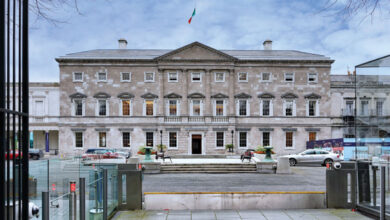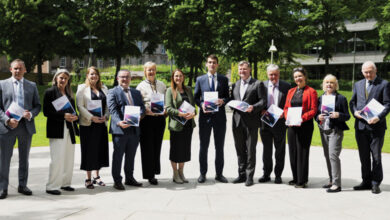It has never been this easy to run a fleet of microsites

The new LGD Microsites Platform offers organisations a way to manage unlimited sites easily and effectively, writes Annertech’s Mark Conroy.
It has been the thing that many large organisations have been clamouring for, for years – one platform that will allow them to run a large number of microsites easily. The LGD Microsites Platform was developed because it was the most requested feature from the organisations that we work with on the LocalGov Drupal project.
We created an easy-to-use, game-changing platform that simplifies the once-arduous task of running many microsites simultaneously. Although it arose from local authority requirements, it has been designed in such a way that any organisation looking to run a fleet of microsites can use it.
It has been met with enthusiasm from those who have used it.
What is LGD?
LocalGov Drupal is a groundbreaking CMS developed by councils for councils. As its name indicates, LocalGov Drupal – or LGD for short – runs on the Drupal platform, offering an out-the-box website solution for local government websites.
The initial goal of the LGD project was to reduce costs by pooling resources, sharing the code, and creating the features that were needed by councils. The project has grown substantially as more local authorities became aware of it. There are currently 42 council websites running on LGD, with many more in the pipeline.
It is important to note that both LocalGov Drupal and the LGD Microsites Platform are built using open-source software. This means it is available for free and does not lock organisations into expensive contracts or service providers.
LocalGov Drupal aligns perfectly with the Irish Government’s 2030 ICT Strategy. Build to Share, which forms part of the strategy, aims to rationalise disparate systems – decreasing the ICT cost base and saving time.
What is the LGD Microsites Platform?
As councils signed up to the LGD platform more features were added to it. These included essential features as well as nice-to-haves. One of these was the stand-alone LGD Microsites Platform.
The platform, which was released late last year, was built in a very generic manner so it can be used by any organisation. It allows organisations to operate their entire fleet of microsites from one place, giving them oversight and control of their entire digital estate.
This platform is a stand-alone system and is independent of the software you may use for your main website.
Who can use this platform?
Although LocalGov Drupal was developed for councils, the LGD Microsite Platform will benefit anyone running more than one site, from national government departments to universities, political parties, multinational corporations, sporting bodies and non-profit organisations.
Some of the features
Unlimited microsites. One platform.
With Annertech’s service offering of the LGD Microsites platform you can host as many sites as you want on all of our platforms. You are only restricted by the amount of disk space available on your plan and number of visits in aggregate to your sites.
Create a microsite in three steps
Yes. Just three steps. That is all it takes to create a microsite. When we say the platform is easy to use, we mean it.
Users and permissions
The platform has a progressive permissions system, which is flexible enough to let users edit only the microsites they are members of, so external users (those who are not employed by the organisation running the microsite) could work on an internal microsite if they are given permission to do so. This allows for collaboration or co-branding opportunities that would not otherwise be possible.
Customised designs per site
Are you creating a microsite for a specific event? Does it need to have its own branding? Or maybe it is a new department or club that is affiliated to a parent organisation, so its branding needs to be similar? Each microsite in your fleet can share the same design, or have its own, and you can use the user interface to change the design at will.
Conclusion
Both LGD and the LGD Microsites Platform are great examples of what can be done when organisations “build to share” – developing software that can then be used by others.
Not only does it decrease costs substantially but, because the code has already been written, sites can be built quickly. Plus, all the features have been thoroughly tested on real websites with real users, so you know they work.
As these platforms continue to grow and more features are added they offer savvy organisations the opportunity to do more with less.
T: 01 524 0312
E: hello@annertech.com
W: www.annertech.com/microsites







